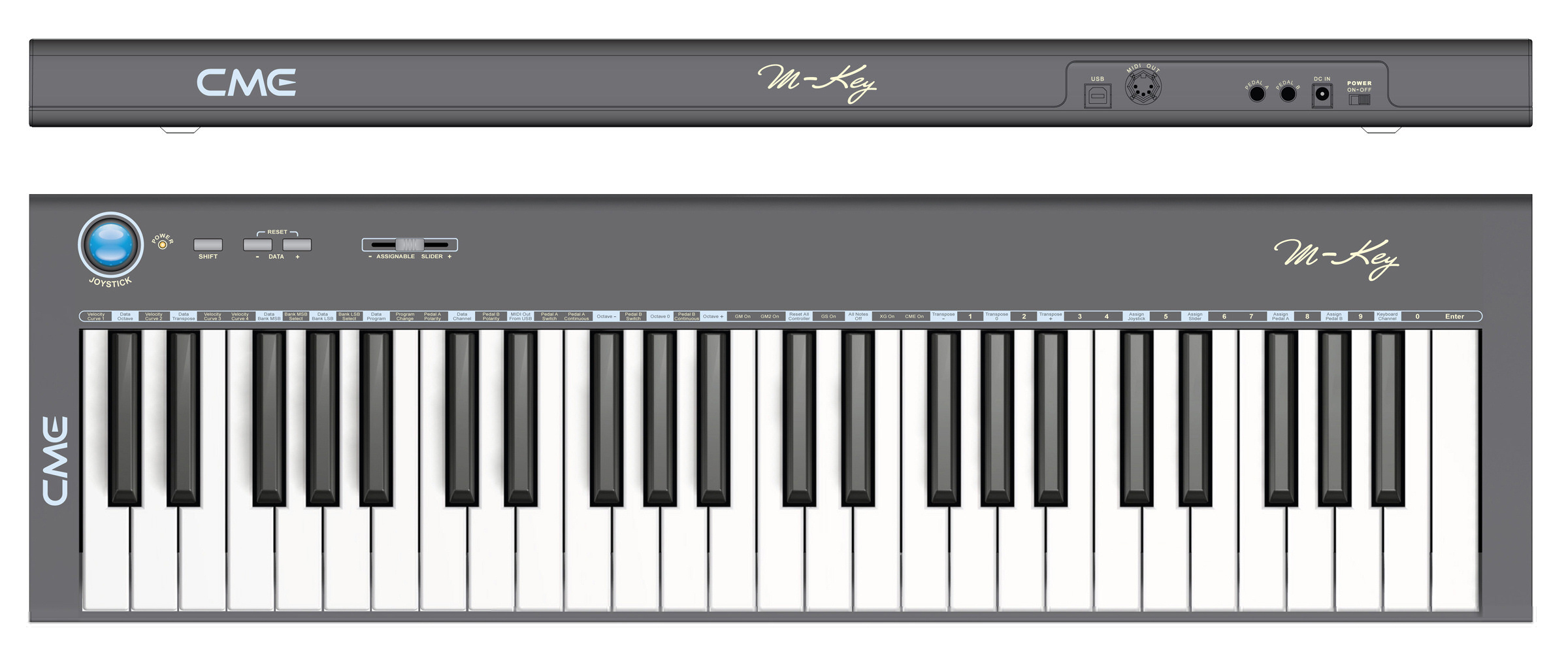Cme Uf5 Usb Driver

Open the package - AmericanMusical. In your UF keyboard package: USB MIDI Master keyboard 1 pcs AC adapter 1 pcs USB cable 1 pcs User's manual 1 pcs CD-ROM for device driver 1pcs Sustain. Pedal 1 pcs (included with UF8 ONLY, optional for UF5/6/7).
Trying to set the CME UF series of mastercontrollers as the main MIDI input in Reaper causes the system to hang with 100% pegged CPU usage. This was using the USB driver, the latest from CME's web site. Eventually, I was able to kill the process. Here is my setup: Athlon64 3200+ CPU (running 32-bit Windows) 512MB RAM SATA hard disk (250GB) USB 2.0 MSI ATI Radeon 9-something-00 video card On-board sound (I didn't feel like lugging my outboard sound interface to my friend's place, where I learned all of this [he owns the CME]) We later tried an old Midiman Oxygen8 with M-Audio's latest driver for USB, and it worked great, so the issue is not MIDI over USB in general. I'll answer any more questions you might have. CME UF5 is what I have, and its own usb out isn't worth wasting your time on at all.
That's based on what everyone else who has a UF says. CME can't figure out how to write usb drivers, and they probably never will. Just use midi through a midi to usb interface or some other midi in if you've got one on a pci card or firewire interface, and it's great. Yep that usually jacks up the cost of a UF by $60 to $300. Once you're not using that usb output: The white transport controls aren't supposed to work, and you have to use the power supply.
That's almost the same as unplugging and re-plugging it at the usb cable. Windows knows where its drivers are, so it recognizes and uses those Cme drivers. That's how it goes even after a reboot. So, the next way to test it would be to go through all that registry cleaning to make sure Windows has no idea that those Cme drivers exist.
I don't remember if I attempted that. Legend of white snake drama. I did clean the registry, but that was when I hooked it up through a midi interface.
I'm quite sure that Windows is going to refuse to install anything until it gets those CME drivers. I think you either have to give it those drivers or cancel out of the auto-detect and end up with those red x entries in the Device Manger. About the original situation where Reaper was freezing as it starts with the Cme drivers loaded. It was doing that on Windows 2000 too. But, almost every program that I ran had some kind of problem with Cme UF drivers. It was some new strange thing with different software.
The freezing just happened to be the particular reaction Reaper had.
The price of controller keyboards has fallen sharply over the past few years, but whoever thought that we'd see an 88-note weighted-action keyboard with aftertouch for under £500? Enter CME's UF8. There's certainly no shortage of 88-note weighted controllers available for the pianist on the market today. There are also lots of semi-weighted synth-action controllers with spans of 25, 49, 61, or 76 keys, most with mod and pitch wheels, and some with aftertouch.
However, the UF8 keyboard controller from the Beijing-based Central Music Company (CME) is something I've been searching for for several years — a budget MIDI controller with 88 keys and aftertouch. Photo: Mark Ewing Some musicians assume that 88 weighted keys can only be used for playing piano and other percussive sounds, and that they aren't suitable for synth sounds and orchestral instruments. However, I've never been convinced by this argument, especially since many modern Gigastudio libraries require keyspans of 76 or more notes to easily access the keyswitching functions used to move between different articulations. Within reason, weighted keyboards can be extremely useful for playing all instruments, and moreover, not everyone has the space or the money for two controller keyboards. So, why use two keyboards in the studio when you could use one?
Although this new UF range is the first to appear under CME's own name, their patented weighted keyboard action has apparently already appeared in various other companies' products. There are four models in the range. The UF5, UF6, and UF7 have semi-weighted synth-action keyboards of 49, 61, and 76 keys respectively, while the UF8 being reviewed here has a 88-key weighted hammer-action keyboard. Otherwise, they are identical, except that the UF8 is supplied with a sustain pedal — on the others, this is an optional extra. All four UF keyboards incorporate several unusual features — the aforementioned channel aftertouch, a breath-control input, the option to retrofit an optional Firewire-based audio interface, plus a largely aluminium case compared with the plastic of some competitors' models.
Each has eight rotary controllers, nine sliders, transport controls, pitch and mod wheels, plus sustain and pedal controller inputs. They are also excellent value for money — the UF8, with 88 weighted hammer-action keys is just under £430 in the UK, while the remaining semi-weighted models come in at £270 for the 76-key, £230 for the 61-key, and £170 for the 49-key versions.